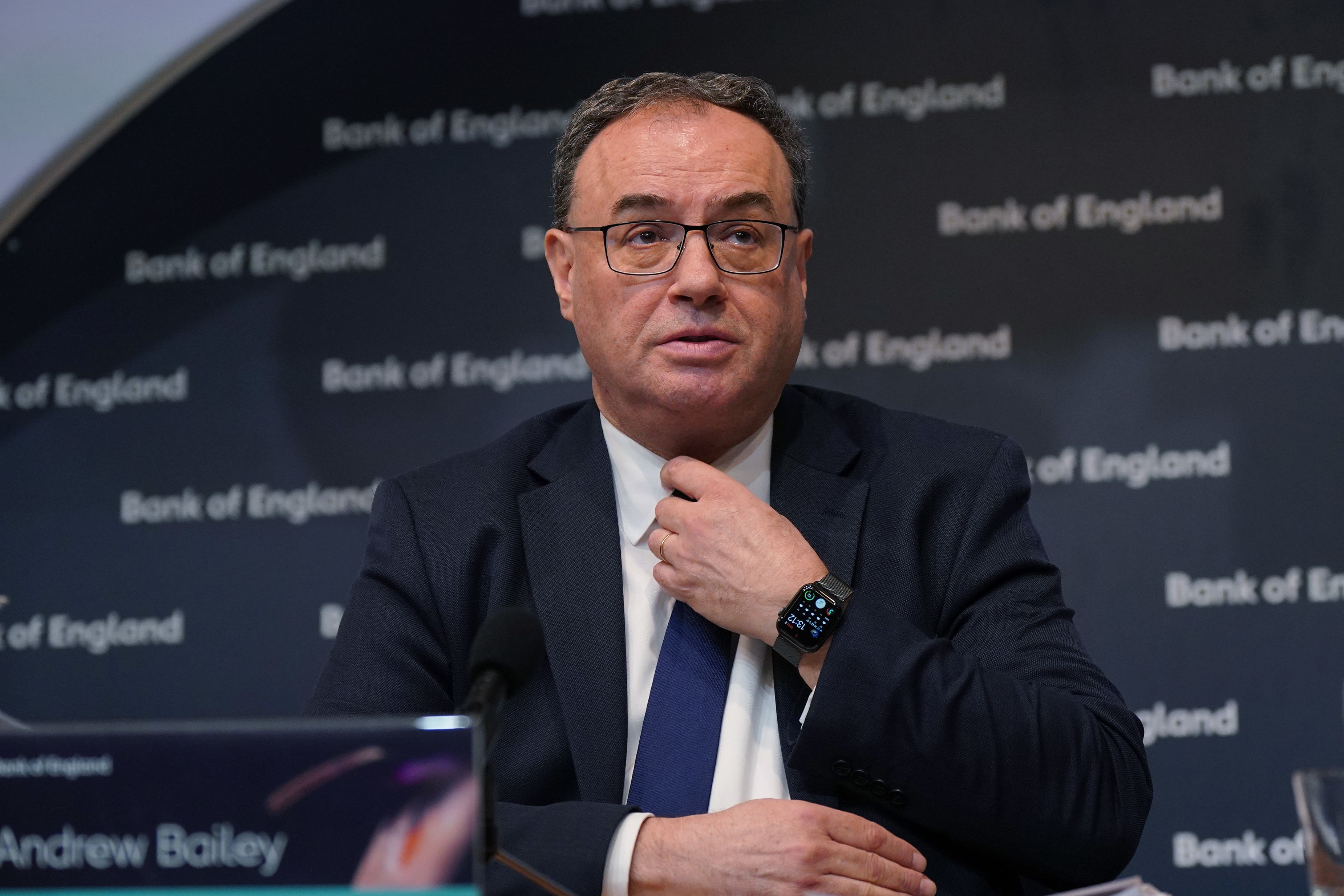Inflation ‘guaranteed’ to fall in 2023 unless new global shock hits, says Bank
The Bank of England’s governor told MPs he is ‘concerned’ about the continued persistence of inflation, but expects the rate to halve this year.

Your support helps us to tell the story
From reproductive rights to climate change to Big Tech, The Independent is on the ground when the story is developing. Whether it's investigating the financials of Elon Musk's pro-Trump PAC or producing our latest documentary, 'The A Word', which shines a light on the American women fighting for reproductive rights, we know how important it is to parse out the facts from the messaging.
At such a critical moment in US history, we need reporters on the ground. Your donation allows us to keep sending journalists to speak to both sides of the story.
The Independent is trusted by Americans across the entire political spectrum. And unlike many other quality news outlets, we choose not to lock Americans out of our reporting and analysis with paywalls. We believe quality journalism should be available to everyone, paid for by those who can afford it.
Your support makes all the difference.Policymakers at the Bank of England have said inflation is almost “guaranteed” to come down rapidly this year unless there is a new, unexpected global event.
Andrew Bailey, the Bank’s governor, told MPs during the Treasury Committee that he is “concerned” about the continued persistence of inflation, but expects the rate to halve this year.
He said: “We are concerned about persistence. This is why we raised interest rates at this time.
“I’m very uncertain, particularly about pricing and wages, and we have the largest upside force we’ve ever had on inflation.
“We do put weight on the persistent risks, but there are also very powerful downside forces this year.”
He insisted that there would be a “very powerful unwinding” of inflation throughout the year, which would only be derailed if there is a new external shock, like a development in the Ukraine war, that it cannot foresee.
But the Bank boss stressed the risks to the inflation outlook, warning there was the “largest upside risk on inflation that we have had in the history of the Monetary Policy Committee (MPC), which is over 25 years now”.
Silvana Tenreyro, an external member of the Bank’s nine-strong MPC, stressed that declining inflation is all but guaranteed.
She told MPs: “Unless there is another big development that we do not or cannot know about, such as a new energy shock, I think a fall in inflation is pretty much guaranteed.
“We have tightened policy significantly over the past year and that’s going to have a large impact on demand, and will be the mechanism that brings inflation down to below target.”
Where we stand right now, I can see myself considering a cut
Ms Tenreyro, who was one of two MPC members to vote to hold rates at 3.5% this month, said she would consider cutting interest rates, given the risk that inflation could fall substantially below the 2% target in the medium term.
She said: “Where we stand right now, I can see myself considering a cut.”
But she held back from saying this would be the case at the next meeting in March.
“I think policy is already too tight to meet the target,” she said. “I don’t want to talk about a particular meeting,” she added.
Ms Tenreyro also pointed out that the Bank could not have brought inflation down to its 2% target last year, because it would have required engineering significant deflation in the services sector.
She warned: “It would have been incompatible with our remit to have inflation at target last year. It would have meant a massive recession.”
Huw Pill, the Bank’s chief economist, added that it is important to exercise caution when looking ahead because of the very nature of economic “shocks”.
“I think it is important to recognise that if we get big shocks, and those shocks could be energy-related but something else too, then that will have an impact on inflation.
“But the character of shocks is that they will be unexpected. The reality is, we don’t have that close control of the economy.”
He also told MPs that monetary policy is a “blunt” but powerful tool and is not effective in supporting certain sectors of the economy suffering amid the cost of living crisis.
MPs questioned Mr Bailey over whether he should feel “vindicated” for his controversial comments last year asking people not to ask for pay rises, given the pressures on inflation from wage increases.
But he said: “I’m not going to say I’m vindicated. It’s a very difficult situation for people in this country and particularly for people on low incomes.”